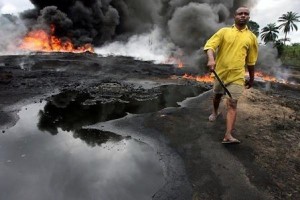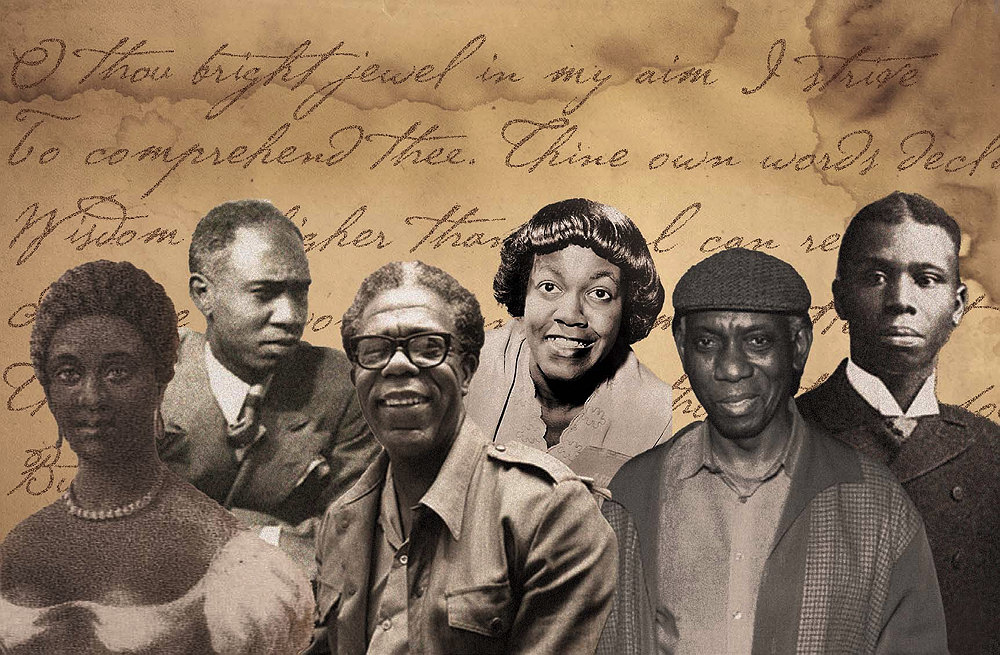(ThyBlackMan.com) I’ve been traveling in and out of Nigeria for the better part of a decade. I’m now in the process of being transferred there permanently by my employer. A few years ago, the US State Department travel warnings cautioned against movement in the South or “south-south” as Nigerians call it. This was the Niger Delta, the oil producing region. At the time, it was arguably the most unstable area of the country. A controversial amnesty program initiated by the Nigerian government has led to relative calm in the once volatile region since 2009. That’s good news, with caution I can call it progress, but since that program has less than two years of life remaining I was led to reflect on my experiences in the Delta during more difficult times. Although there is currently a ceasefire, although I would characterize tension as on simmer rather than ended, the underlying causes of conflict—political, environmental, and economic– still remain.
I understood the rationale behind the travel warnings the moment the flight landed in Owerri, Imo State and we had to move by road to Port Harcourt. The Port Harcourt airport was closed for repairs at the time. The road travel was good for me. It gave me a better sense of the area.
Police checkpoints seemed to be up every 5 miles or so. We were traveling with a white colleague and the police inquiries regarding his safety were frequent. At the time, the south-south was the hottest kidnapping zone in the country and the preferred target were often foreign oil industry workers.  European countries and oil companies pay ransom–the US government does not. A white face in the Delta at that time could bring unwanted attention. Kidnappings of foreigners were at times followed by the execution of their local escorts. Those left behind post abduction could bring an armed response to the kidnapper and/or their team. That was deemed a risk not worth taking by militants.
European countries and oil companies pay ransom–the US government does not. A white face in the Delta at that time could bring unwanted attention. Kidnappings of foreigners were at times followed by the execution of their local escorts. Those left behind post abduction could bring an armed response to the kidnapper and/or their team. That was deemed a risk not worth taking by militants.
I worked with the Nigerian labor unions representing workers in the oil industry. Their leadership had a surprising take on what we in the West would refer to as militants or even terrorists. They knew most of them. These were people they went to school with, family members even. These were folks who couldn’t wait on government crumbs to land at their feet and decided to take what they believed was rightfully theirs. But this was not entirely the righteous revolution that some might wish to spin in a “conscious” university study cypher. There was a business model linked to this activity. Nigeria is a place of business and kidnapping at the time was deemed to be just another sector to be explored and exploited. We were made aware of various kidnapping techniques such as pulling hostages out of cars during traffic jams or “fishing” foreigners out of nightclubs with beautiful woman as a lure. The art of negotiation and care of the hostage formed part of the Nigerian model. Another article could be written on how the southern Nigerian version differs from Mexico or the variety connected to human trafficking in Europe, but there is a model.
The militancy in the Delta was not entirely financially motivated. In fact the environmental devastation linked to the leakage of pure crude oil into the environment has turned large segments of the region into a polluted wasteland. This is a place where legitimate non-oil related businesses have fled or been destroyed. There was a mix of armed and nonviolent response to neglect in the Delta. The lines were often blurry. In South Africa, there is a term used to describe the nexus of crime and activism. The term is com-tsotsi. It describes thugs embedded within legitimate struggle action—protests, strikes, and the like. Depending on whom you talked to militants and protestors were either criminals or freedom fighters. Sometimes they were perceived as both. My time in the Delta didn’t make me cynical as much as a realist. There are too many sides to a story for one solitary viewpoint to guide you.
Although the lines can blur at times there are unmistakably principled community and environmental activists throughout the region. The pushback in response to governmental and corporate abuse and neglect in the Delta is valid, although the merit of various approaches can be argued.
I was not traveling in a tourist haven so I was assumed to be Nigerian. That was a badge of honor for me. It also kept me safe. As much as some African-Americans hate the mere idea of having African blood coursing through their veins, the moment it saves their life they will immediately see it as a blessing. On every level, I preferred to be mistaken for a Nigerian born brother from Calabar than an Oyibo (Yoruba for white man or foreigner). An American accent and/or real or perceived American arrogance make you an Oyibo—regardless of race. It’s not always considered a diss by the person saying it. But for any African-American with even the slightest philosophical connection to Pan-Africanism it’s a greater insult than being called the N-word with the hardest of hard R’s.
The poverty in a region that contains the greatest source of Nigeria’s wealth is staggering. That won’t surprise you. You’ve read that book. You’ve bought that t-shirt. What will really floor you is the absolute hustle of Nigerian people. In a place that is not guaranteed basic services, brothers and sisters in Nigeria find a way. Need water—done. Need your hair or weave fixed—available. Thirsty—they’re selling Coke and Sprite on the highway during rush hour traffic. Missed a season of True Blood—the pirated copy is available for a price, and if you don’t like that price, there will be an instant roadside sale that if the model were exported would threaten the Walton family’s stranglehold on “everyday low prices.” Nigeria captures the spirit of African people to find a way or make one.
Although the south-south has a unmistakable beauty it also bears the scars of an oil industry that has had relatively little to no trickle down impact on the masses of poor people who rarely if ever benefit from it. Nigeria has one of the fastest growing economies in the world, with a GDP growth rate that eclipses most Western economies. But GDP does not necessarily translate to proper food, housing, education, or hopeful life chances.
There are some extremely wealthy people in Nigeria and to be fair a growing middle class. Oil plays a large role in that growth and when you go to parts of the Delta and literally see people living in oil, the result of massive spills, unchecked pollution at levels unimaginable in the U.S., you will question why the world hasn’t fought the oil companies to develop cleaner sources of fuel. In southern Nigeria, you think more about oil than any non-Shell Oil exec or person unconcerned about environmentalism should. It changes you.
From the locals, the pollution is blamed solely on the oil companies. The oil companies blame the theft of oil and the release of it onto the ground and into the waterways by those members of the community breaking the pipelines in an effort to steal the oil. What can’t be argued is the devastating effect of gas flaring when the natural gas from oil production is simply burned off into the atmosphere. The flames from that fiery release shooting directly out of the ground are an alarmingly common site in this part of the country.
I was never an environmentalist before working in Nigeria. Now I see it as making no sense not to be one. The hunger for petroleum products in the West fuels its extraction in the country. This is a removal of resources lacking proper controls. The poverty in the region, leads residents there to take dangerous chances tapping into either pipelines, road freight or water vessels that often lead to further pollution or life threatening explosions that can devastate communities in an instant.
I cannot sing the praises nor condemn the policies of Nigerian President Goodluck Jonathan. It’s not necessary for me to do that. Well informed Nigerians have made their opinion known in regards to his leadership. I will say that the amnesty program and the attempts to train and employ former militants and local young people shut out of the economy are commendable.
My return to Nigeria this year has witnessed a shift in hotspots from the South to the North as Islamic separatist sect Boka Haram carries out suicide bombings and executions with the government response being no less violent. An already fragile relationship between Muslims and Christians has become shakier in the last several years. That’s a topic for another day. Like the cooling of the crisis in the South, Nigerians will internally provide a solution to this latest emergency. I am confident of that. My hope is that the remedy will address the underlying causes of conflict, a necessary element embedded within the southern solution. Without that, every crisis will run hot and cold and be set on repeat in Africa’s most populous nation.
Staff Writer; Christopher Keith Johnson
This talented brother can be reached on Facebook and Twitter.




















Thanks for explaining a very complex issue in a way that makes me feel like I was actually there. One of my biggest worries is the environment. It seems that we (westerners) Americans in particular will poison the world with no thought of the consequences as long as we have gas for oversized SUVs. I think that we a black people are not even conscious of the environment. Even in the US we allow landfills in our communities and then are satisfied when the put a park on top of it.